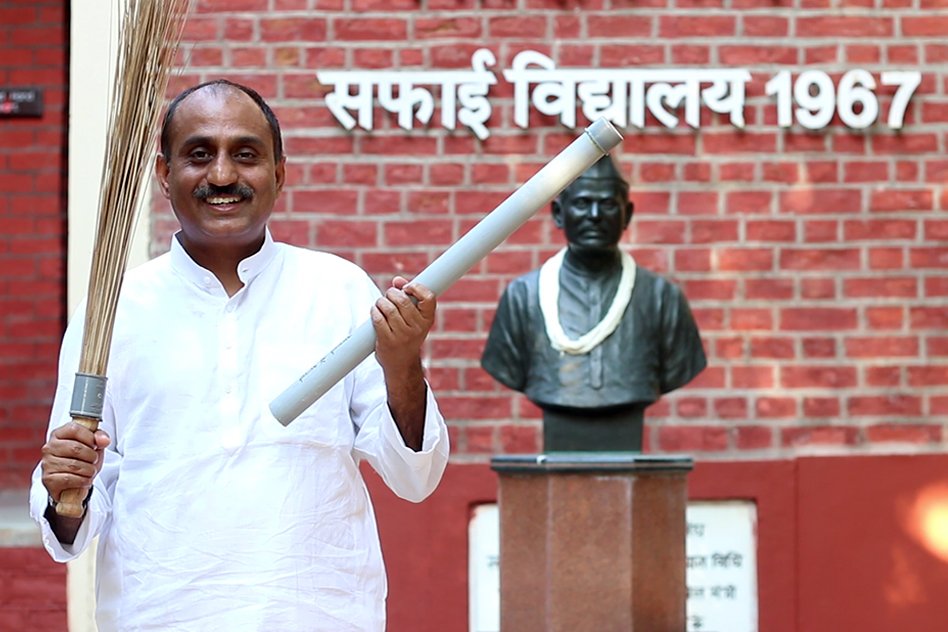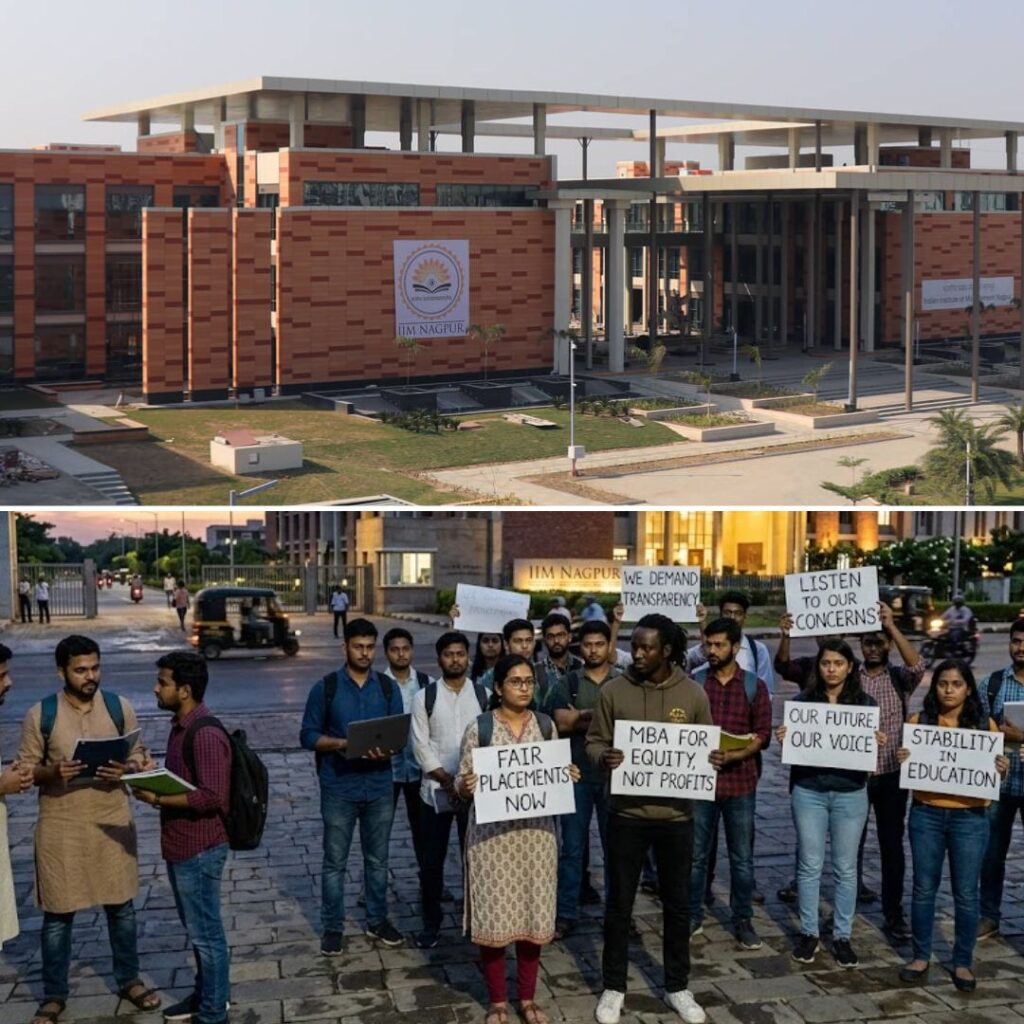Image Courtesy: The Logical Indian
Jayeshbhai Patel is the co-founder and director of Manav Sadhna in Gujarat, India. Formed in 1990 with the mission to serve the underprivileged, the trust now provides health and hygiene, education, and employment services to over 4,500 women and children through over 38 projects. The trust runs Environmental Sanitation Institute that has become a main centre to provide manpower as well as technical know-how and research facility for cleanliness work in the country, especially for toilet. He shared his experience with us in an exclusive interview:
What is your idea of cleanliness?
Cleanliness is a beautiful word. Where there is cleanliness, there is beauty, there is order. My father used to say “Cleanliness means to keep a thing at its designated place. For example, if hairs are on head – cleanliness but if it’s in food – uncleanliness. If you go to toilet – cleanliness but if you go on road – uncleanliness. If you put your garbage in dustbin – cleanliness, if you it throw on road – uncleanliness.”
Today, thousand hands litter and few hands clean. The one who cleans is looked down by the society and one who litters, easily escapes. We’ve coined the manual scavengers (cleaners of our garbage or latrine) as “Untouchables” but when a mother cleans the latrine of her child, it’s quite okay for the society. No one calls her an untouchable and hence, this thinking has to go. Cleanliness or sanitation is everybody’s work, not only of a particular community or individual.
But why put so much emphasis on cleanliness?
Cleanliness or sanitation has a scientific side attached. If you’re unclean, you’ll be ill, if you’re ill, you can’t go to work, if you can’t got work, you cant earn, if you can”t earn, you can’t eat good food – so there is uncleanliness in the root of poverty; physical and economical both. Today, the situation is such that we keep ourselves clean but don’t keep our country clean. Cleanliness is Godliness.
There is gold in garbage. There is no waste as such, best can come out of waste – in the form of gold. There is so much to do with waste but we should have the consciousness for it.
What do you think is the solution?
If we want cleanliness and sanitation, we’ve to develop good habits. Cleanliness is not a project, it’s a value system, it’s an art and it’s a service. Cleanliness is a work of compassion. In India, 80% cause of any disease is unsafe water and poor sanitation. Prevention is better than cure, so instead of going to the doctor now and then, we should cultivate clean habits. We should follow the 4 R formula – Reduce, Recycle, Reuse and Refuse.
Why was Environmental Sanitation Institute established and what does it do?
The institute was established to support our cleanliness and sanitation workers. We work in the areas of training, construction, and supervision of environmental sanitation campaigns across India. Our passion to change the current poor national and global sanitation situation stems from the Gandhian philosophy of eradication of unaccountability. The dangerous and demeaning practice of scavenging, or manual removal of faeces, and its designation to the lowest caste in India has been the motivation for us.
We expertise in low-cost sanitary technology that has spawned the construction of a new training and education institute for sanitation to meet the need and demand for such programs. The institute is used not only for current training and capacity building programs, but also to provide training, workshops, and research opportunities for professionals, NGO representatives, university and post-graduate level students. The Eco-friendly site reflects our dedication to creating a world free of unaccountability and harmful pollution and waste.
What is story behind being called The Toilet God Of India?
In 1958, my father, Ishwarbhai Patel, was fondly called by this title. He has dedicated his entire life for cleanliness and sanitation work. I was in college and peers used to call me “Baby Toilet” and I felt proud about it. Most of the women in villages go to the toilet at night. They control the call of nature the entire day, and face health problems like constipation. At night, they’re victim of eve-teasing and sometime, rape. Won’t I built toilets for my mothers and sisters? We have lockers in our homes but why not toilet?
In India, we have more televisions, telephones, temples than toilets. If we have to clean our mind, we go to prayer houses, but where do we go to clean clean our body – in the toilet. This is the entire focus of my work – toilet, cleanliness and sanitation. Father is no more, and now I am the proud owner of this title.
The Logical Indian team salutes to the spirit of this worshipper of cleanliness and sanitation. We sincerely hope that all of us get inspired by his message.













